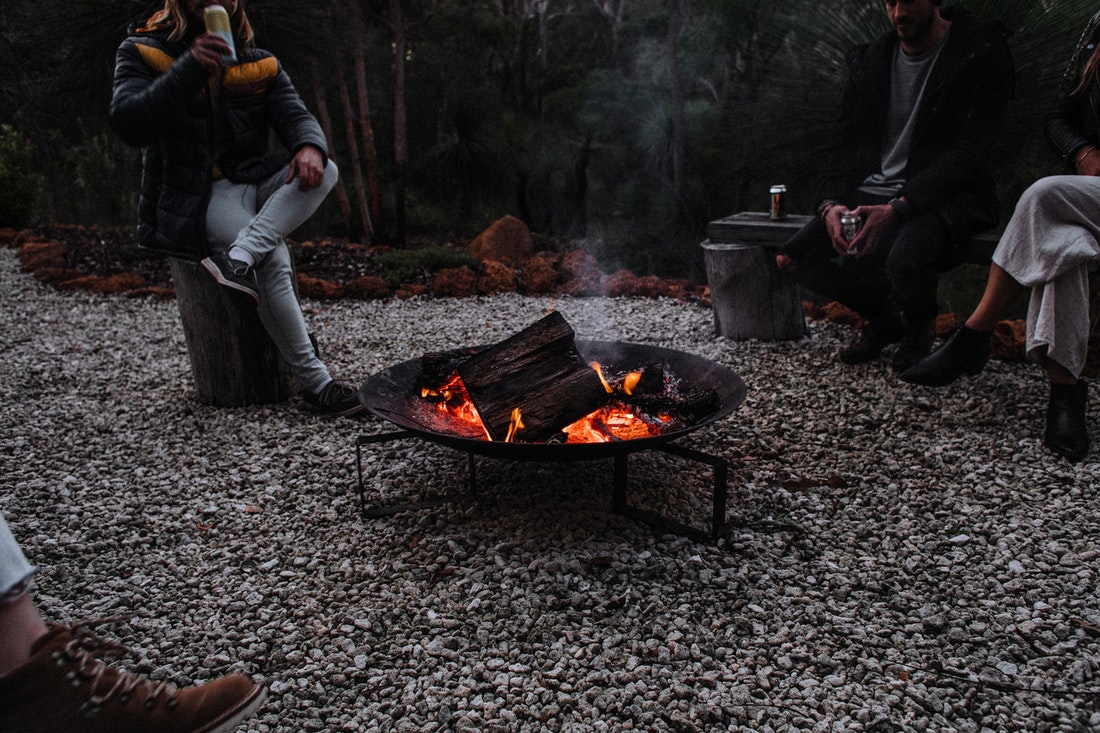Going on your first camping trip? You’ll need to make sure you have the right gear! This post will discuss everything that a camper should pack for their first time going out in nature.
Below you will also find helpful tips and tricks that can be used while camping.
Take Your Time in Choosing the Location
You must pick the right spot to pitch your tent on. Choose a place with plenty of trees and less grass so it can be easier for you to set up camp. Also, try finding an area with no rocks or roots under the ground, as this may cause unnecessary discomfort during sleep time.
It would be best if you also considered how far your car is from the camping site. You might want to take a walk each day, and you would need to make sure that it’s not too far for you. A good location makes all the difference, so make sure to take your time in picking it out.
Always Plan for Bad Weather
It is imperative to plan for the worst-case scenario when camping because it may just happen! The weather can change drastically during a short amount of time. Always check with your local meteorologist before you head out to see what kind of conditions are expected throughout the day and week.
If there is even a tiny chance that rain or cold temperatures could be in your future, it is best to prepare.
Plan Your Activities in Advance
It would be best if you always had a plan for your camping trip. Create lists of the things that need to get done, whether gathering firewood or making sure all critical documents are in place in case of an emergency.
You should always make sure to be equipped with the proper tools for your camping trip. If you are hiking, bring sunscreen and bug spray; if it’s raining outside, pack an umbrella or raincoat.
These things will help ensure that your time spent in nature is safe and enjoyable. Planning activities in advance will help make your camping trip go more smoothly and help you avoid the stress of forgetting something important. By planning early on, you can better ensure that all aspects of your adventure are accounted for—from cooking to sleeping arrangements.
Know What Meals to Cook and Stock Up
When you go camping, your food will be limited to what can fit in a cooler and on the fire. Therefore, it is essential to plan your meals, and you can even plan them around what is available at the grocery store.
Cooking on a campfire means that you must buy or bring tin foil, skewers, tongs and other cooking tools. If they are not with your grill utensils, add these items to your camping checklist. Be sure to stock up meals that are easy to cook and that you will not tire of eating. Sandwiches, hot dogs, toast with jam or cereal can get very boring after a few days, so it is vital to have other options available.
Pack the Right Clothing
Having proper clothing is very important on your camping trip. You do not want to wear anything that will make you uncomfortable or cold during the night, but at the same time, you don’t want to be too hot and end up sweating all night long either.
The best thing for a camp in mild weather would probably be a light jacket. Right clothing means that you need to prepare for the weather, which means dressing in layers.
Never Leave Your Flashlight Behind
Some people might think that it’s okay to leave your flashlight in the car or somewhere else inside of their house. But, you need to keep your compact camping flashlight with you at all times. It is suitable for when you walk outside after dark and if the power goes out when you are home alone during a storm.
You can also keep it with you when you are sleeping at night or during the day if there is a chance of storms since they often happen unexpectedly in certain regions. A flashlight might not seem like something that would need to be kept on your person all the time, but this object has so many uses that it’s worth keeping nearby.
Have a First Aid Kit
Make sure you have a first aid kit that is complete. In addition, you’ll want to make sure the following items are in your equipment: adhesive bandages, antibiotic ointment, antiseptic wipes, tweezers and scissors.
You also need alcohol pads or cleanser towels, hydrogen peroxide solution (to clean wounds), cold pack(s) to reduce swelling and pain, and non-aspirin pain relievers such as acetaminophen or ibuprofen. Furthermore, you need antihistamines for insect bites, hydrocortisone ointment for allergic reactions, emergency blanket(s), medical adhesive tape (to secure bandages), petroleum jelly or another lubricant to prevent chafing and blisters, safety pins (to secure bandages), sunscreen, and sunglasses with UV protection.
Lookout for Camp Sales
Make sure you check the dates when you find a good deal. Most sales take place in spring and fall, so keep in mind when planning your trip. Also, looking out for camp sales is a great way to find things at a lower price.
Do Not Choose the Lowest Spot on the Campsite
The ground can be uneven, so you do not want to choose the lowest spot. Even if it looks convenient at first glance, the low-lying areas are prone to flooding and difficult access for vehicles. Also, consider that water drains toward lower elevations in a campsite – an area with poor drainage will result in standing puddles of water.
Do Not Arrive at the Site After Dark
Make sure to arrive at the site before dark so that you can familiarize yourself with it and set up your tent. Arrive during the day so that you can scout out your campsite and take note of where specific amenities are (like restrooms) before it gets dark outside. It is better to learn about these things in daylight than by stumbling through them after dark.
Camping can be a great and affordable way to spend time with your family, friends and pets. If you plan on going camping this year or in the near future, hope that you will feel more prepared after reading this blog post than ever before!
Keep up with Project Fairytale



